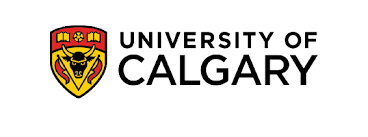University of Calgary: UCalgary venture that improves protein content in plant tissues emerges as $100K winner in TENET i2c
For more than five years, the TENET i2c (innovation to commercialization) program has been supporting researchers at the University of Calgary to translate their innovative ideas into new products or services.
“We selected the top research-based startups at UCalgary and provided them with training, mentoring, and funding to accelerate their commercialization journey and ultimately hone their pitches to compete for the $100,000 grand prize. Each year the competition has grown fiercer as the innovation community across UCalgary is maturing and growing quickly,” said Keri Damen, executive director of the Hunter Hub for Entrepreneurial Thinking. “Originally launched by the Cumming School of Medicine, the TENET i2c program has since grown to be UCalgary-wide to support ventures from any faculty.”
This year, the TENET i2c Competition was embedded within the Inventures conference held at the Calgary TELUS Convention Centre, which featured inspirational interdisciplinary keynote talks, seminars, and pitch competitions held from June 1 to 3, 2022. With a diverse audience attending the conference, which included academics, investors, and accelerators such as Plug and Play and Startup TNT, the TENET i2c startup teams had access to valuable connections to help build their venture.
The TENET i2c program was made possible by a generous donation from Ken Moore, the co-founder and former president of TENET Medical Engineering.
“There’s so much great research that is done at UCalgary, so much knowledge that people create and knowledge that is passed on to the students. We would be foolish as a university, as a province, and as a nation not to try and best utilize this research and talent, and ensure we offer them opportunities and support that can then help Calgary, Alberta, and Canada,” said Ken Moore.
Award funding supports translation of technology to market
On June 3, the final day of Inventures, this year’s program culminated in the TENET i2c Competition where the top eight teams pitched live to a panel of judges for the chance to win the grand prize of $100,000 toward commercialization. In addition, Alberta Innovates generously provided three special prizes worth $10,000 each for ventures in the following areas: Digital Health, Data-Enabled Health Transformation, and Engineering for Human and Animal Health. The winning teams are as follows:
Overall winner: AgGene, an agriculture biotechnology company focusing on technology to improve protein content in plant tissues, emerged as the $100,000 grand prize winner of the TENET i2c Competition. “Participation in the TENET i2c program has been a tremendous benefit to AgGene. In addition to the programming associated with the TENET i2c program, the prize from the pitch competition will help our company build a solid team which will play a critical role accelerating our commercialization efforts,” said Dr. Logan Skori, AgGene’s CEO.
Winner of the Digital Health $10,000 prize, Nimble Science, enables microbiome innovators to accelerate pipeline development of novel therapeutics and diagnostics with direct real-time sampling of small intestinal fluid.
Winner of the Data-Enabled Health Transformation $10,000 prize, Fluidome, has developed custom-designed products and services that make infection diagnostics and drug testing faster, easier, and cheaper.
Winner of the Engineering for Human and Animal Health $10,000 prize, Zymedyne Therapeutics Inc., develops safer, more effective treatments for chronic neuropathic pain targeting a non-opioid-based mechanism crucial in pain signalling.
The following companies were also part of the top eight finalists that pitched at the competition:
Teresagenics Pharma Inc. is a Calgary-based startup that focuses on the generation of novel, safe, and effective anticancer agents for currently incurable tumours in children.
MetHerb Combiotic Inc. develops antibiotics using novel formulations of metalloid-based antimicrobial combinations with plant-based natural compounds.
RetinaLogik Biotech Inc. has created accessible vision testing technology with enhanced insights to prevent avoidable blindness.
SenseSi Technology Inc. has created a wearable device to detect health-related biomarkers in sweat, with an initial focus on stress-related markers.
The Hunter Hub acknowledges the partners that helped make the TENET i2c program and competition possible: Cumming School of Medicine, Platform Calgary, Innovate Calgary, W21C, Alberta Innovates, and Inventures.

